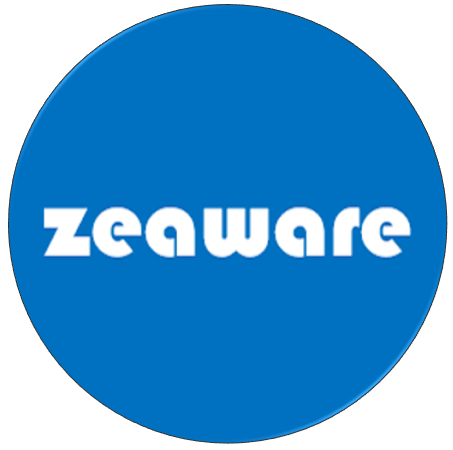Understanding Modern Data Platforms
The way organisations handle data has become a critical determinant of their success. Traditional data warehouses, once the backbone of enterprise data management, are gradually being overshadowed by the emergence of modern data platforms. In this article, we delve into the essence of modern data platforms, spotlighting trailblazers like Databricks, exploring their distinctions from legacy systems such as SQL Server and Oracle, and highlighting the types of organisations that are leading the charge in adopting these advanced technologies.
The Rise of Modern Data Platforms
At its core, a modern data platform is a comprehensive, cloud-based solution designed to facilitate the storage, processing, and analysis of vast amounts of data. Unlike traditional databases that primarily focus on storing structured data, modern data platforms excel in handling a wide variety of data types, including structured, semi-structured, and unstructured data, at an unprecedented scale. This flexibility allows businesses to glean insights from a broader data spectrum, driving more informed decision-making and innovative strategies.
Key Features of Modern Data Platforms
- Scalability: Modern data platforms utilize the elasticity of cloud infrastructure to effortlessly scale resources up or down based on the data demands of the business. This adaptability ensures that companies can manage their data workload efficiently without the constraints of physical hardware limitations.
- Diversity of Workloads: One of the hallmark features of modern data platforms is their versatility in managing diverse workloads. These platforms are adept at handling both structured and unstructured data, making them suitable for a wide array of applications—from traditional data warehousing to complex data science projects. This flexibility empowers organizations to explore and analyse their data in ways that were not possible with legacy systems.
- Real-Time Processing: The capability to process and analyse data in real-time is a critical advantage offered by modern data platforms. This allows organizations to act on insights almost instantaneously, facilitating rapid decision-making and enabling a more agile response to market trends and customer needs.
- Advanced Analytics and Machine Learning Integration: Modern data platforms seamlessly integrate with advanced analytics and machine learning algorithms. This integration allows for the execution of sophisticated data science projects directly on the platform, using popular programming languages such as Python. Historically, these tasks required separate, specialized tools, but the unified nature of modern platforms enables a more streamlined workflow.
- Broader Use Cases Beyond Business Intelligence: While traditional data warehouses primarily supported business intelligence (BI) operations, modern data platforms cater to a much broader range of use cases. These include real-time analytics, predictive modelling, data science, and machine learning, among others. This expansive utility makes them invaluable assets for organizations looking to leverage their data for strategic advantage across multiple domains.
- Data Governance and Security: Despite their advanced capabilities and open nature, modern data platforms place a strong emphasis on data governance and security. They offer sophisticated mechanisms to ensure data is managed responsibly, maintaining privacy, compliance, and data integrity across all operations.
By embracing modern data platforms, organizations can significantly enhance their data management and analysis capabilities, accommodating a wide range of data types and workloads. This flexibility, combined with the ability to perform real-time analytics and advanced data science tasks, marks a transformative shift in the potential for data-driven decision-making and innovation.
Databricks: A Forerunner in Modern Data Platforms
Databricks stands out as a prime example of a modern data platform, offering a unified analytics platform that facilitates collaboration between data scientists, engineers, and business analysts. It integrates seamlessly with existing data storage systems and provides tools for real-time analytics, machine learning, and AI, all within a collaborative and managed environment.
Here are some of the standout features and benefits of Databricks, as an example of capabilities available within modern data platforms:
- Unified Analytics Platform: Databricks offers a cohesive environment that brings together data scientists, engineers, and business analysts. This unity fosters collaboration and streamlines the transition from data exploration and experimentation to production deployments.
- Lakehouse Architecture: Databricks champions the lakehouse paradigm, which combines the best elements of data lakes and data warehouses. This approach enables scalable and cost-effective data storage along with robust data management and analytics capabilities, supporting both BI and advanced analytics on the same platform.
- Advanced Machine Learning and AI: With built-in support for machine learning and AI, Databricks simplifies the development and deployment of complex models. It provides a comprehensive environment for building, training, and deploying machine learning models at scale.
- Robust Security and Governance: Databricks ensures data security and compliance with enterprise-grade security features, including data encryption, access controls, and audit trails. This makes it a trusted platform for handling sensitive data and complying with regulatory requirements.
- Diverse Ecosystem and Community: Being an open and extensible platform, Databricks thrives on a rich ecosystem of data tools and libraries, supported by an active community of users and contributors. This ecosystem enables organizations to extend and customize their data and AI workflows.
The Contrast with Legacy Data Warehouses
Legacy data warehouses like SQL Server and Oracle, while reliable for handling structured data and supporting business intelligence operations, face challenges in accommodating the scale, variety, and velocity of today's data. They typically require significant upfront investment in infrastructure and maintenance, struggle with real-time data processing, and often operate in silos, hindering cross-departmental collaboration.
Who is Adopting Modern Data Platforms?
Modern data platforms are not just for the tech giants and data-intensive industries; they are increasingly becoming the backbone of data strategies across a spectrum of organizations, from mid-market businesses to large enterprises. Their design to scale workloads of all sizes makes them a versatile choice, capable of accommodating the growing and varying data needs of any organization.
Scalability Across Market Segments
One of the most compelling features of modern data platforms is their scalability, which caters to businesses of all sizes. For mid-market companies, these platforms provide an entry point to leveraging data analytics and advanced data science without the need for substantial upfront investment in physical infrastructure. As these companies grow, the data platform scales with them, accommodating increasing volumes of data and more complex analytics requirements.
Large enterprises, on the other hand, benefit from the robustness and flexibility of modern data platforms to manage massive, diverse data sets across different departments and use cases. Whether it's real-time analytics, machine learning models, or complex data integration tasks, these platforms are designed to handle enterprise-level demands efficiently.
Financial Considerations and the Value Proposition
It's important to note that adopting modern data platforms may not necessarily translate to immediate cost savings when compared to existing data warehouse solutions. Due to their ability to support a more diverse range of business requirements beyond traditional reporting—such as advanced analytics, real-time data processing, and machine learning—organizations might find themselves investing more to fully leverage these capabilities.
However, this increased investment should be viewed through a lens of value creation rather than mere cost. By enabling a wider variety of data-driven initiatives, modern data platforms can significantly enhance an organization's agility, innovation capacity, and competitive edge. The return on investment extends beyond cost savings, offering substantial gains in operational efficiency, customer insights, and strategic decision-making.
The transition to modern data platforms represents a significant shift in how businesses approach data management and analytics. By offering scalability, real-time processing capabilities, and advanced analytics, platforms like Databricks are setting new standards for efficiency and innovation. As more organizations recognize the potential of these platforms, we can expect to see a continued move away from legacy systems, paving the way for a data-driven future.






